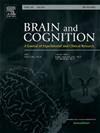Analyzing the effects of high autistic traits on neural markers of learning and memory: An EEG approach analysis
IF 1.4
3区 心理学
Q3 NEUROSCIENCES
引用次数: 0
Abstract
Objective
A body of electroencephalographic (EEG) research demonstrates that executive functioning (EF) differences exist in autistic people. Here, we aimed to investigate how and to what extent these EF differences appear in people with high autistic traits in contrast to a low autistic traits comparison.
Methods
The present study used a series of EEG markers (frontal theta power, frontal beta power, the reward positivity ERP component, and the P300 ERP component) to examine potential differences in EF over the course of gambling and oddball tasks. Qualitative research measures to include the perspectives of the autistic people who took part in the study were also used.
Results
While frontal theta and beta power differed between groups, we observed no significant component or correlational differences. However, it was found that high autistic traits participants perceived their task performance as worse than low autistic traits participants despite task performance being equal across groups.
Conclusions
EF differences as measured by frontal theta and beta power were observed across groups. Self-perception of task performance may differ in high autistic traits participants when asked to complete tasks under a time constraint.
分析高自闭症特征对学习和记忆神经标记的影响:脑电图方法分析
目的大量脑电图(EEG)研究表明自闭症患者执行功能(EF)存在差异。在这里,我们的目的是研究这些EF差异是如何以及在多大程度上出现在具有高自闭症特征的人群中,而不是在具有低自闭症特征的人群中。方法采用一系列EEG标记(额叶θ波功率、额叶β波功率、奖励正性ERP分量和P300 ERP分量)检测赌博和古怪任务过程中EF的潜在差异。定性研究也包括了参与研究的自闭症患者的观点。结果两组间额叶θ和β功率存在差异,但未见显著成分差异或相关差异。然而,高自闭症特征的参与者认为他们的任务表现比低自闭症特征的参与者差,尽管两组的任务表现相同。结论通过额叶θ和β功率测量各组间的sef差异。当被要求在一定时间内完成任务时,高自闭症特征的参与者对任务表现的自我感知可能会有所不同。
本文章由计算机程序翻译,如有差异,请以英文原文为准。
求助全文
约1分钟内获得全文
求助全文
来源期刊

Brain and Cognition
医学-神经科学
CiteScore
4.60
自引率
0.00%
发文量
46
审稿时长
6 months
期刊介绍:
Brain and Cognition is a forum for the integration of the neurosciences and cognitive sciences. B&C publishes peer-reviewed research articles, theoretical papers, case histories that address important theoretical issues, and historical articles into the interaction between cognitive function and brain processes. The focus is on rigorous studies of an empirical or theoretical nature and which make an original contribution to our knowledge about the involvement of the nervous system in cognition. Coverage includes, but is not limited to memory, learning, emotion, perception, movement, music or praxis in relationship to brain structure or function. Published articles will typically address issues relating some aspect of cognitive function to its neurological substrates with clear theoretical import, formulating new hypotheses or refuting previously established hypotheses. Clinical papers are welcome if they raise issues of theoretical importance or concern and shed light on the interaction between brain function and cognitive function. We welcome review articles that clearly contribute a new perspective or integration, beyond summarizing the literature in the field; authors of review articles should make explicit where the contribution lies. We also welcome proposals for special issues on aspects of the relation between cognition and the structure and function of the nervous system. Such proposals can be made directly to the Editor-in-Chief from individuals interested in being guest editors for such collections.
 求助内容:
求助内容: 应助结果提醒方式:
应助结果提醒方式:


